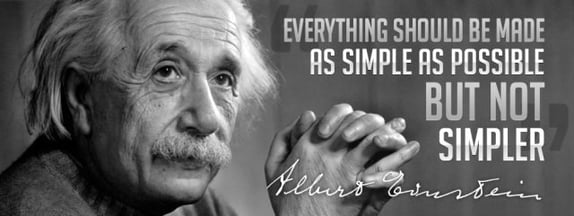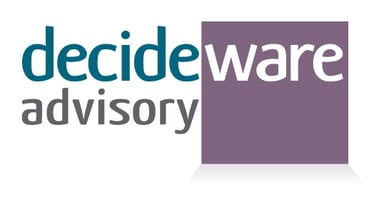Back in 2007, Adweek highlighted the 50 year relationship between Publicis Groupe’s Leo Burnett and...
Lessons Learned from the Implementation of a New Agency Performance Management Framework

Agency Evaluation Principles
I recently wrote an article about whether or not agency evaluation processes should be modified based on how some companies (such as Adobe, Deloitte and Accenture) have revised employee evaluation programs. Agency evaluations are ultimately performance evaluations of teams and individuals. Although obviously not your employees, your agency teams are often extensions of your marketing departments. Therefore, you can apply the same thinking when developing their evaluation programs.
In the article, I highlighted ways to structure your agency evaluations and outlined four key principles that can assist in running them more effectively. Those principles state that Agency evaluation processes should be designed so that they are ongoing, timely, robust and relevant.
Based on these principles, we recently developed a new agency performance management framework which we have implemented with several of our global clients. I would like to share some key lessons learned from those experiences.
Make Things as Simple As Possible, But Not Simpler
This famous Albert Einstein quote seems to be truer now than ever. With each passing year, everything is getting more complex. We can’t afford to keep introducing more complexity into the already difficult advertising environment.
Making things simple holds true for the agency evaluation process design. One of the biggest downsides to running a comprehensive evaluation program is the investment of time that is required of you and your marketing organization. We advise that you either invest all of the required time or not run any evaluation program at all. If you are not fully invested, you are basically creating a half-baked, box-ticking exercise that will not add any value (and still takes up time).
With that in mind, we completely revamped our approach to the evaluation question set and moved away from what is still a common approach of getting maximum granularity of answers by asking 30 – 50 questions. We designed our new approach to be simple, but not necessarily simpler.
Let’s start with a counter-argument and say that with more questions you ask, you do get a more detailed response. However, there is a significant increase in the investment of time required to participate in the evaluation program and it is more likely that people will point to the similar (or even same) problems in different questions. This may actually lead you to miss or misinterpret the key issues when evaluating the responses.
We made our new evaluation approach simple and agile. We have scrapped more than 50% of the recommended questions that did not add a unique perspective on various aspects of agency operations, delivery and relationship. The result is evaluations that are simple to execute, but not simpler when it comes to distilling the qualitative outcomes.
How Does the New Agency Question Set Framework Perform?
Mentioned earlier, we ran sessions with some of our global clients where we reviewed the agency evaluation question sets and provided feedback on how they could be optimised using our revised approach.
We have applied specific approaches to the question design utilising our R.A.T.E. framework:
- Reflective
- Questions need to allow for each evaluator to clearly understand what they’re evaluating and how it applies to the overall goal(s) and strategy.
- Analytical
- Agency -> Client and Client -> Agency questions need to reflect each other to enable high-quality perception gap analysis.
- Traceable
- We should be able to pin-point which specific part of the relationship is causing the issues or that works really well, so that it could be replicated elsewhere.
- Enabling
- All questions need to enable dialogue between the parties. They should open the discussion, not lead to yes/no answer.
Although for privacy reasons we can’t provide all the details of the specific engagements, we can share that it has been a great experience overall as we’ve been able to address all key important areas of agency performance with much less clutter.
Implementing this new approach in real life has been an eye-opening experience and we’re looking to review and analyse the results as they come in.
Should You Also Think About Changing Your Approach to Agency Evaluations?
The old saying of “you shouldn’t repair what isn’t broken” still applies. Therefore, if your current agency evaluation system delivers value and drives the improvement of agency performance and your relationships, then there’s probably little reason to change the approach that works.
However, if you feel that your evaluation program might be getting dated and/or doesn’t truly deliver on its objectives, then maybe it’s worth considering changing your approach to agency evaluations.
It doesn’t truly matter if you deal with low or high complexity when it comes to the structure of your agency relationship, internal organization or geography as there are now automated tools that will help you manage such complexities.
The key to success is running an evaluation program that is fit for your specific requirements. Create a program that delivers value to you and your organization.
_______________________________________________________

Enabling you to get the best value from your Marketing Agencies
Decideware Advisory was created to help all advertisers operate at Global Best Practice.
We provide expert advice to improve the design and operation of your agency management program.
Our goal is to work with you to solve problems and achieve world-class capabilities.
www.decideware.com



